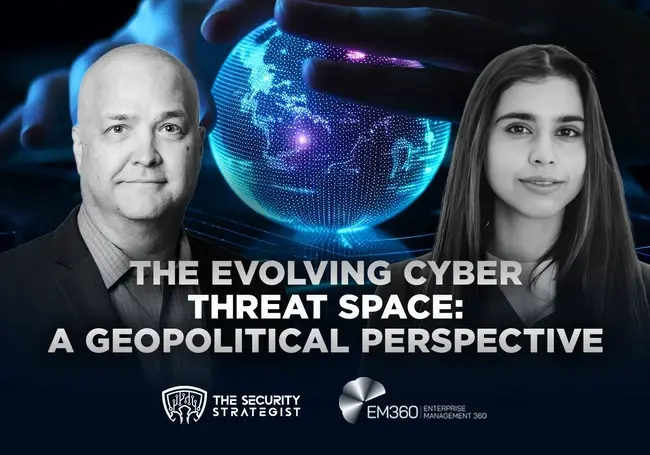In today's deeply connected world, cybersecurity is no longer just a technical issue—it's deeply intertwined with geopolitics. This episode explores this complex relationship, talking about the ever-shifting threat space and examining how international regulations and geopolitical tensions impact organisations' cybersecurity posture.
The episode also discusses the double-edged sword of artificial intelligence in cybersecurity, acknowledging its potential to enhance defenses while also requiring skilled personnel to effectively leverage its capabilities.
It further spotlights that achieving zero risk in cybersecurity is an unrealistic goal, and enterprises must focus on building strong risk management frameworks and selecting the right security controls to mitigate potential damage.
The podcast provides valuable takeaways for businesses of all sizes, stressing the importance of continuous improvement and adaptation in the face of ever-evolving cyber threats.
Tune in for a deep dive into the intersection of geopolitics and cybersecurity. Gain valuable insights on how to navigate the complex regulatory environment, leverage the power of AI, and develop effective risk management strategies to protect your organisation in today's interconnected world.
In this episode of the EM360Tech’s The Security Strategist podcast, host Shubhangi Dua speaks with Bryan Marlatt, Chief Regional Officer at CyXcel, about the complex relationship between geopolitics and cybersecurity.
Takeaways
- The global regulatory landscape for cybersecurity is complex and fragmented.
- Privacy regulations are critical for enterprises to monitor and comply with.
- AI can enhance cybersecurity processes but requires skilled personnel to leverage effectively.
- Zero risk in cybersecurity is unrealistic; organisations must manage acceptable risk.
- GDPR has significantly influenced how organisations approach data protection.
- Phishing attacks remain a prevalent threat across all sectors.
- Operational technologies are increasingly vulnerable to cyber threats.
- Organisations need to adopt a proactive approach to cybersecurity.
- Choosing the right security controls is essential for effective risk management.
- Continuous improvement and adaptation are necessary in the cybersecurity landscape.
Chapters
00:00 Introduction to Geopolitics and Cybersecurity
02:29 Navigating the Complex Regulatory Landscape
05:15 The Role of AI in Cybersecurity
12:15 Understanding Acceptable Risk in Cybersecurity
18:24 Global Perspectives on Cybersecurity Regulations
23:04 Emerging Cyber Threats and Mitigation Strategies










Comments ( 0 )